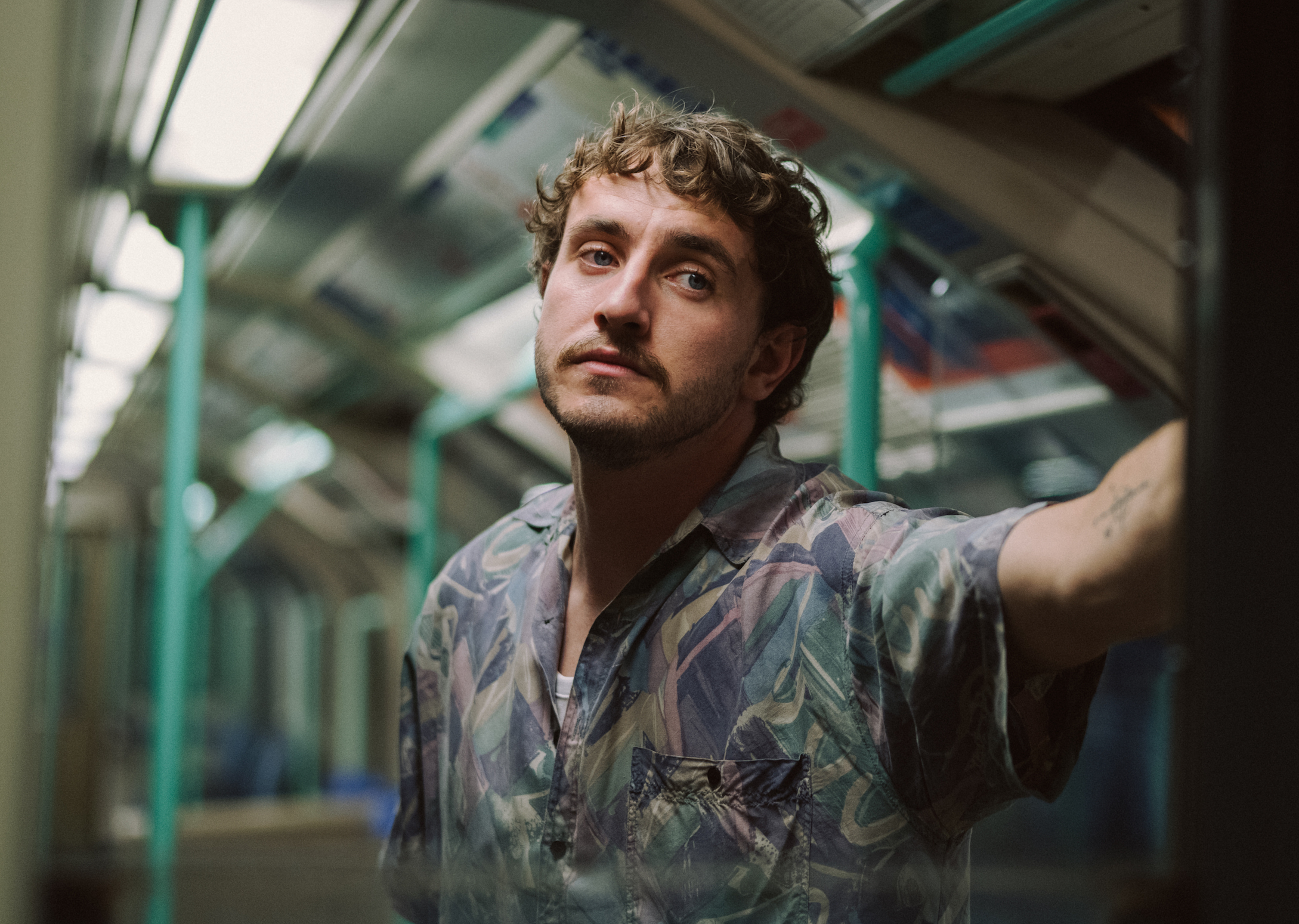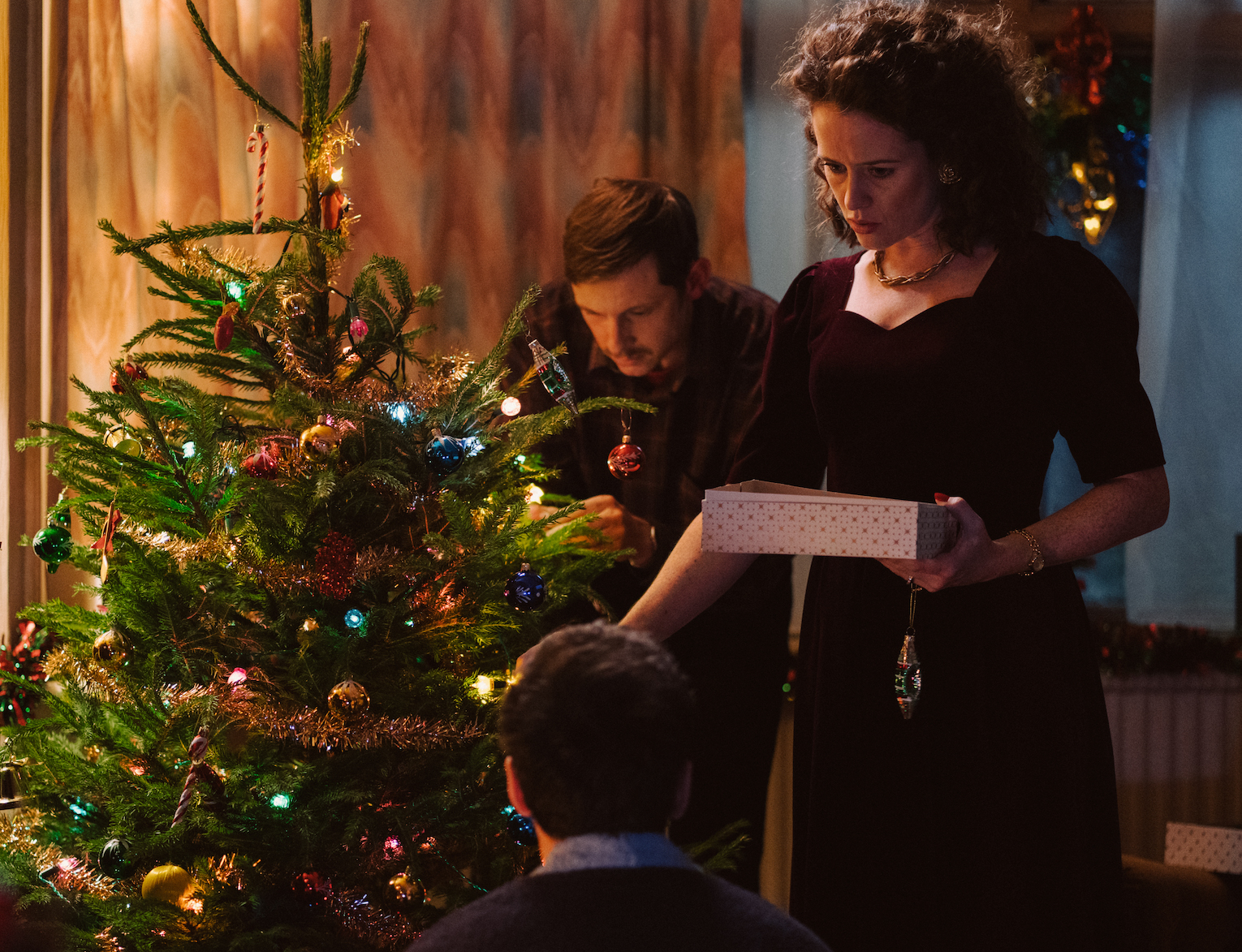Andrew Haigh’s films come at you like stealth bombers, presenting everyday scenes in a spare narrative style, and then using them to blitz you with unexpected emotions. His latest is no exception.
It starts with the familiar sight of a thirtysomething writer, Adam (Andrew Scott), in a modish high-rise flat, staring at his laptop screen, thoughts and typing fingers frozen, with the lights of London spread out below him. Then an alarm sounds, and he wearily makes his way down to the tower block’s designated meeting point outside. Where there is nobody to meet. Eerily, he seems to be the only tenant in his building.
So when a figure standing at the window of a blue-lit flat on the sixth floor waves to him, he waves back. In his flat once again, there is a knock on the door, and he finds a drunken younger man, Harry (Paul Mescal, pictured below), leaning on the door frame with a welcoming grin, a bottle of expensive Japanese booze and a request to come in: the waving man from the sixth floor. Adam is hesitant and eventually says no, though the sweet smile that flickers on his face suggests he is intrigued.  He soldiers on with his screenplay, for which he has an exterior setting – suburbia in 1987 – but little more. Next he rummages through a storage box of memorabilia, presumably for inspiration, and finds old photos of himself as a young boy in a striped shirt, along with a lot of tat and a little hessian doll. Soon he is on the train to East Grinstead to visit his former family home.
He soldiers on with his screenplay, for which he has an exterior setting – suburbia in 1987 – but little more. Next he rummages through a storage box of memorabilia, presumably for inspiration, and finds old photos of himself as a young boy in a striped shirt, along with a lot of tat and a little hessian doll. Soon he is on the train to East Grinstead to visit his former family home.
From here, the film becomes richly supernatural, through the simple device of presenting Adam with his parents (Claire Foy and Jamie Bell, pictured below right with Scott in foreground) the way they were when he was 11 and they were about to be killed in a car crash. His younger self, in his striped shirt, occasionally appears too, an impassive onlooker. His mother is chatty and solicitous, very happy to see him again; his father a taciturn but sympathetic man, not one for expressing himself, but a kindly man.
Although they find nothing strange in encountering their grown-up son, they still live in a 1980s bubble, as Adam discovers on a subsequent visit where he and his mother discuss his queer identity – “homosexuality”, she calls it, tartly, astounded that gay people can have children and marry each other. “I wouldn’t know about that.” For her, having a gay son is not something any mother would want, a world of Aids and bullying and pain. Adam assures her everything is fine now, all that has changed, but he protests too much. His meetings with his revenant parents settle old scores but also inflame old wounds.

When Adam bumps into Harry again, this time they smoke weed, have slow, sweet-natured sex and realise they are much the same in having no friends, no close relatives to speak of – Harry says he has “drifted to the edge” of his family in Leeds, always felt like a stranger there. He is almost maternal with Adam, the more confident one, staying the night with him, comforting him when he has a bad drug reaction, much as Adam’s father grows closer to him in their strange meetings, uttering the sad line at one point: “Can I hug you now?” They edge closer to one another emotionally.
The storyline thus far is rich and resonant in itself – but Haigh’s screenplay (based on the novel Strangers by Taichi Yamada) has more twists in store as it teases out the parameters of the characters’ emotional lives, even the dead ones. By the end it has become a poignant tribute to the power of love, which is the track playing over the finale, by the presiding geniuses of the place, Frankie Goes to Hollywood. The music throughout is a perfectly judged mix of 1980s disco and a pulsing electronic score by Emilie Levienaise-Farrouch, suggesting both the real world and the supernatural one, between which Adam moves.
Scott and Mescal enrich the narrative with microscopic, ultra-fluid shifts in mood and look, so that every inch of their faces becomes our map of what is happening. Behind the camera, Jamie Ramsay moves in almost painfully close to them, so we are seeing them as they see each other, or focuses on their mirror-image intertwined legs, each being stroked by the other’s hand, as if they have one body. Scott’s mercurial facial prowess we are used to now, his jet-black eyes glittering with tears even as he flashes a radiant smile; but Mescal outflanks his usual sad hunks with a poignant performance lifted by beautifully judged impish humour. (Please, somebody, give him a comedy to play in soon.)
Foy and Bell, too, are wonderful to watch, Foy much like Scott in her ability to flip from a brittle smile to tearfulness in a nanosecond, every gesture truthful; and Bell projecting the believable maturity and four-square decency that have marked many of his recent roles. It turns out that Adam’s parents have to learn about the power of love, just as he does.
By the time the end-credits are rolling, the title’s full potency is clear, retroactively charging what we have just seen with even more emotional heft. It’s an extraordinary film, both delicate and intense, a miniature that covers epic territory – grief, loss, loneliness, fear and, above all, love.















Add comment